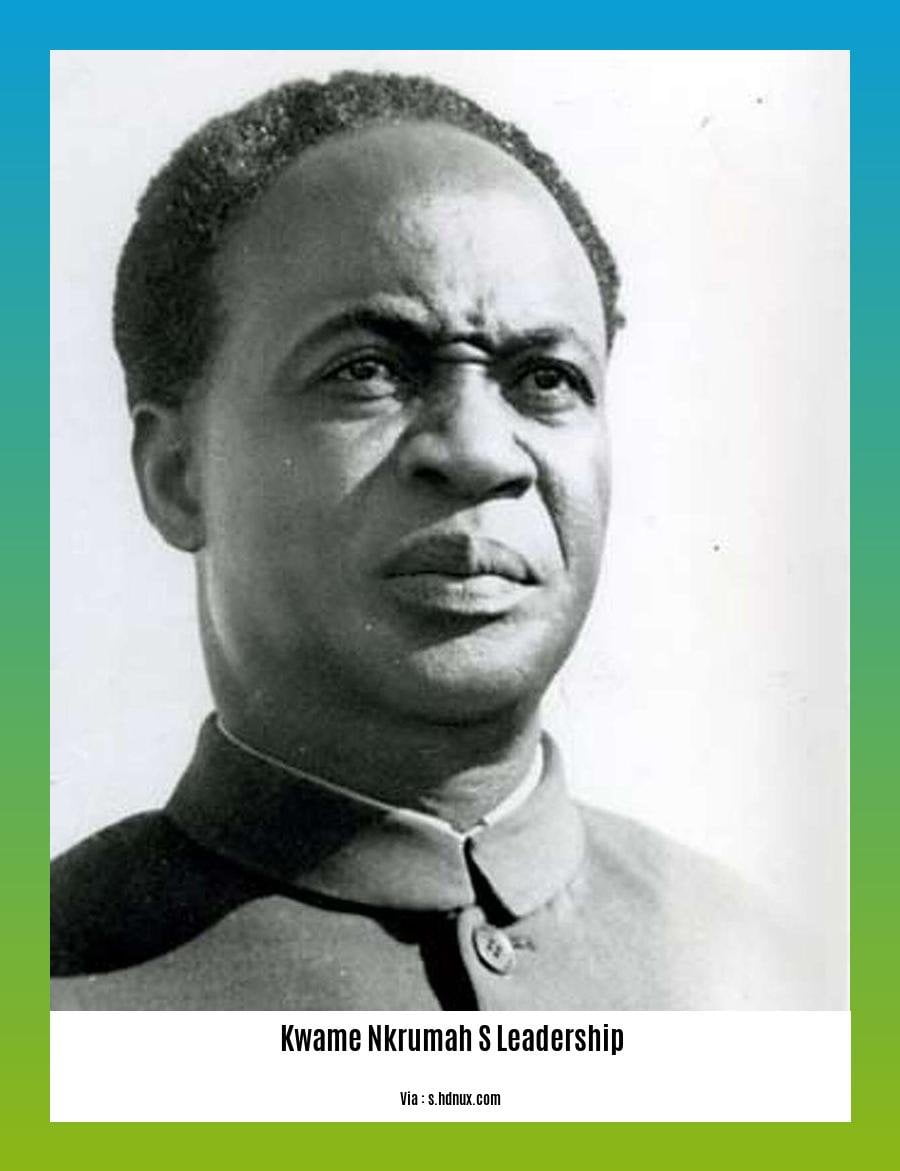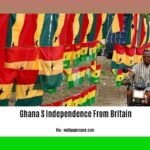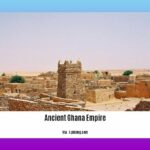Kwame Nkrumah’s Leadership: The Architect of Ghana’s Independence and Pan-Africanism. This article delves into the extraordinary leadership of Kwame Nkrumah, exploring his pivotal role in Ghana’s independence and his profound impact on pan-Africanism. Nkrumah’s unwavering commitment to self-determination, astute political strategies, and visionary policies transformed Ghana into a beacon of hope and a symbol of African unity, leaving an enduring legacy that continues to inspire generations.
Key Takeaways:
- Kwame Nkrumah led Ghana’s independence movement and became its first African-born Prime Minister.
- He guided Ghana’s independence in 1957, inspiring African liberation efforts.
- Nkrumah promoted pan-Africanism and advocated for African unity.
- His nonviolent activism influenced Martin Luther King Jr.’s civil rights work.
- Nkrumah was overthrown in a 1966 coup.
Kwame Nkrumah’s Leadership
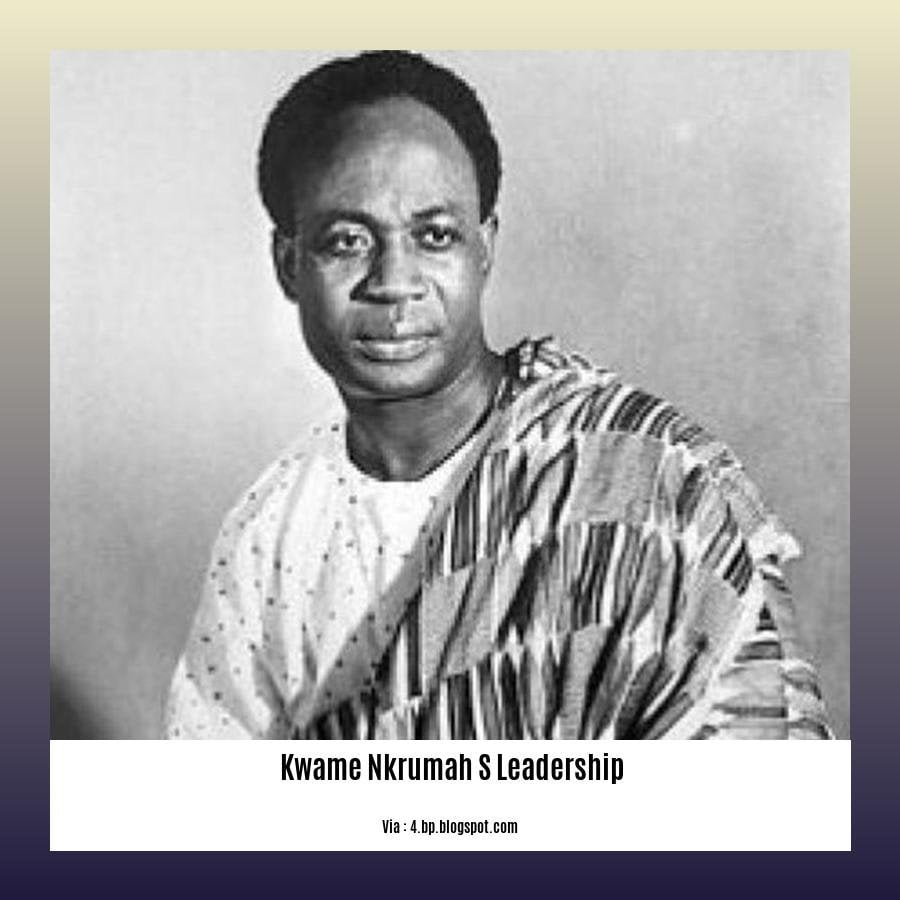
Who was Kwame Nkrumah?
Kwame Nkrumah was a Ghanaian nationalist leader who led the Gold Coast (now Ghana) to independence from Britain in 1957. He became Ghana’s first Prime Minister and later its first President. Nkrumah was a strong advocate of pan-Africanism and played a leading role in the formation of the Organization of African Unity (OAU) in 1963.
Key Aspects of Kwame Nkrumah’s Leadership
1. Nationalism and Independence:
* Led the Gold Coast’s independence movement through peaceful resistance and civil disobedience.
* Declared Ghana’s independence on March 6, 1957, becoming the first sub-Saharan African country to gain independence.
2. Pan-Africanism:
* Strongly believed in the unity of all African nations.
* Founded the OAU to promote cooperation and unity among African countries.
* Advocated for a United States of Africa, a continent-wide political union.
3. Economic Development:
* Implemented policies to promote economic growth and development in Ghana.
* Established the Volta River Project, a major hydroelectric dam that provided electricity and irrigation to the country.
* Built schools, hospitals, and other infrastructure to improve the lives of Ghanaians.
4. Social Reforms:
* Introduced free education for all Ghanaian children.
* Expanded healthcare access and improved living standards for the population.
* Promoted gender equality and women’s rights.
5. Foreign Policy:
* Maintained a non-aligned stance during the Cold War.
* Established diplomatic relations with both the East and West.
* Supported anti-colonial movements in other African countries.
Nkrumah’s Legacy
Nkrumah’s leadership had a profound impact on Ghana and the broader African continent. He is widely regarded as one of the most influential leaders in African history. His policies and ideas continue to inspire African leaders and activists today.
Challenges Faced by Nkrumah
- Economic difficulties and corruption in Ghana during his rule.
- Opposition from political rivals and foreign powers.
- Allegations of authoritarianism and human rights abuses.
Despite these challenges, Nkrumah’s leadership remains an important chapter in the history of Ghana and Africa. His contributions to independence, pan-Africanism, and economic development continue to be celebrated and recognized.
The rich and vibrant history of Ghana goes back centuries, and is a fascinating story to explore. Get the full insight into the History of Ghana, and its journey to becoming a prominent nation on the global stage.
Delve into the depths of the ancient and powerful Ancient Ghana Empire, which once dominated the region and left an enduring legacy.
Ghana’s struggle for independence from British colonial rule was a significant moment in its history. Learn more about Ghana’s independence from Britain and the factors that shaped its path to self-governance.
Kwame Nkrumah’s Major accomplishments: Independence, development, and unity
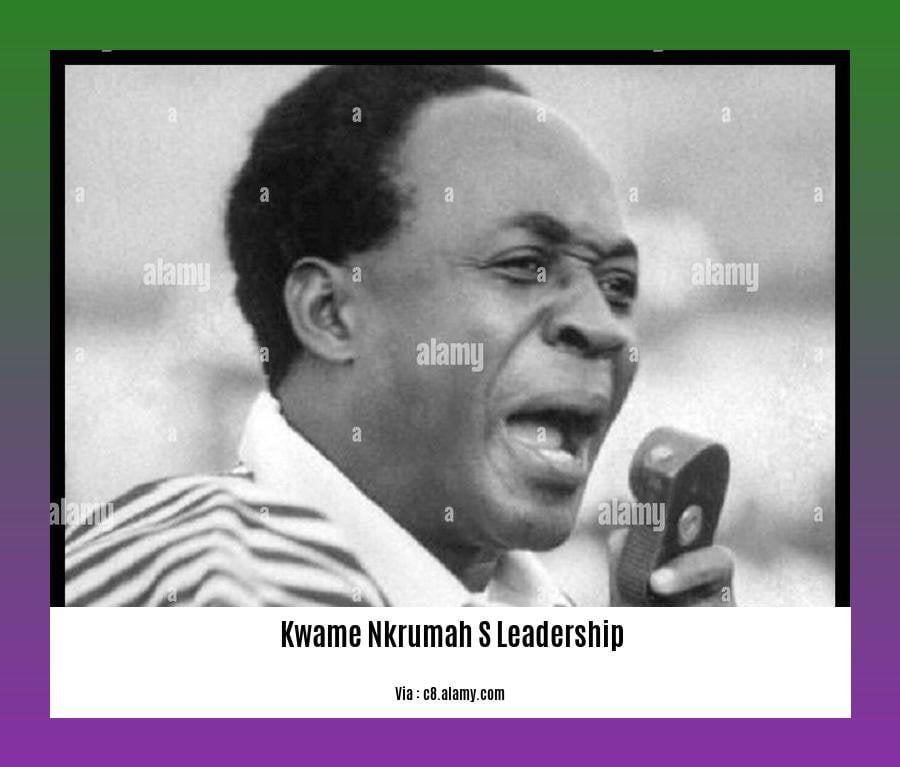
Ghana’s Path to Independence
Kwame Nkrumah’s leadership played a pivotal role in Ghana’s journey to independence. Under his guidance, the Gold Coast, as Ghana was then known, transitioned from British colonial rule to self-governance in 1957. Nkrumah’s unwavering commitment to independence and his ability to mobilize the masses ignited a spirit of nationalism that propelled Ghana to the forefront of the African liberation movement.
Prosperity and Progress
Nkrumah recognized the importance of economic development and implemented ambitious policies to transform Ghana’s economy. He initiated infrastructure projects, established industries, and invested in education, laying the foundation for a more prosperous and self-reliant nation. The Volta River Project, a hydroelectric dam, became a symbol of Ghana’s industrial aspirations and a source of electricity for the country’s growing industries.
Uniting the African Diaspora
Nkrumah was a staunch advocate for Pan-Africanism, believing that the unity of African nations was essential for progress and self-determination. He spearheaded the formation of the Organization of African Unity (OAU), which brought together independent African states to promote cooperation and solidarity. Through his efforts to foster a sense of shared identity and cultural pride, Nkrumah inspired a new era of African consciousness and political activism.
Key Takeaways:
- Kwame Nkrumah led Ghana to independence from British colonial rule in 1957.
- His economic policies aimed to foster Ghana’s development, with projects like the Volta River Project.
- Nkrumah was a prominent advocate for Pan-Africanism, promoting unity and cooperation among African nations.
Citations:
- GhanaHomePage: Kwame Nkrumah – Achievements and Failures
- World History Edu: 10 Interesting Facts About Kwame Nkrumah
Challenges and controversies: Economic difficulties, opposition, and authoritarianism.
Kwame Nkrumah’s leadership was not without its challenges and controversies. He faced economic difficulties, particularly in the later years of his rule. His ambitious development plans often outstripped Ghana’s resources, leading to inflation and debt. Nkrumah also faced opposition from within his own party and from other political groups. He was accused of authoritarianism and of suppressing dissent.
However, his achievements were many. He led Ghana to independence from Britain in 1957 and played a key role in the formation of the Organization of African Unity (OAU). Nkrumah was a strong advocate of Pan-Africanism and believed that African nations should work together to achieve economic and political liberation. He also implemented a number of social and economic reforms in Ghana, including free education and healthcare.
Key Takeaways:
– Nkrumah’s economic policies were ambitious but often outstripped Ghana’s resources, leading to economic difficulties.
– Nkrumah faced opposition from within his own party and from other political groups.
– He was accused of authoritarianism and of suppressing dissent.
– Despite these challenges, Nkrumah’s achievements were many and he remains an important figure in African history.
Relevant URL Sources
– GhanaHomePage
– World History Edu
Legacy: Impact on Ghana, Africa, and the world
Kwame Nkrumah’s visionary leadership not only transformed Ghana but also left an enduring legacy on Africa and the world. Let’s explore the profound impact of his policies and ideologies:
Impact on Ghana
- Independence and Self-Governance: Nkrumah’s unwavering pursuit of independence laid the foundation for Ghana’s sovereignty, inspiring other African nations to reclaim their autonomy.
- Socioeconomic Development: He initiated ambitious programs in education, healthcare, and infrastructure, laying the groundwork for Ghana’s economic growth and social progress.
- Symbol of African Unity: Ghana under Nkrumah’s leadership became a beacon of hope for pan-Africanism, fostering cooperation and solidarity among African nations.
Impact on Africa
- Champion of Pan-Africanism: Nkrumah’s vision of a united Africa led to the establishment of the Organization of African Unity (OAU), promoting collaboration and economic integration across the continent.
- Economic Liberation: He advocated for the decolonization of Africa’s economies, calling for the end of exploitation and the empowerment of African nations.
- Intellectual Inspiration: Nkrumah’s writings and speeches inspired a generation of African leaders, who drew upon his ideas of self-determination and continental unity.
Impact on the World
- Non-Aligned Foreign Policy: Nkrumah’s stance of non-alignment in the Cold War era allowed Ghana to maintain independence from both the Western and Eastern blocs.
- Advocate for Peace and Development: He played a significant role in international organizations, promoting global cooperation and the resolution of international conflicts.
- Symbol of Anti-Colonialism: Nkrumah became an icon of the anti-colonial movement worldwide, inspiring oppressed people in Asia and Latin America.
Key Takeaways:
- Nkrumah’s leadership shaped the course of Ghana’s history, leading the nation to independence and economic development.
- His vision of pan-Africanism played a pivotal role in fostering unity and cooperation among African nations.
- Nkrumah’s legacy extends beyond Africa, inspiring anti-colonial movements and advocating for global peace and development.
Relevant URL Sources:
- The Kwame Nkrumah Foundation
- African Studies Review
FAQ
Q1: What were the key principles of Kwame Nkrumah’s leadership?
Q2: How did Nkrumah’s Pan-Africanism shape his policies and actions as a leader?
Q3: What were the main challenges and obstacles faced by Nkrumah during his time in power?
Q4: What is Nkrumah’s legacy as a leader, and how is he remembered today?
Q5: What were Nkrumah’s economic policies and how did they impact Ghana’s development?
- Crypto Quotes’ Red Flags: Avoid Costly Mistakes - June 30, 2025
- Unlock Inspirational Crypto Quotes: Future Predictions - June 30, 2025
- Famous Bitcoin Quotes: A Deep Dive into Crypto’s History - June 30, 2025
